What are Condensing Units
Condensing units are essential components of modern refrigeration and air conditioning systems, designed to condense refrigerant vapor into liquid form. By doing so, they release heat absorbed from within the refrigerated space or during the air conditioning process. These units are integral for anyone needing controlled temperatures, such as restaurants, supermarkets, hotels, and manufacturing plants, ensuring that perishable goods stay fresh and environments remain comfortable.
The working principle behind condensing units is based on the thermodynamic cycle commonly known as the refrigeration cycle. This cycle consists of four main processes: compression, condensation, expansion, and evaporation. In the condensation step, the refrigerant vapor, compressed and heated by the compressor, travels to the condenser. Here, it is cooled by either air or water and changes phase from a gas to a liquid. This phase change releases heat, which is carried away from the unit.
For efficient operation, condensing units are equipped with several key components: a compressor to pressurize and circulate the refrigerant; a condenser where the heat removal occurs; a fan to provide airflow over the condenser coils; and various controls to manage the operation of these parts. The units come in different configurations and capacities to serve a wide range of applications in both commercial and residential settings.
Types of Condensing Units
The variety of condensing units available caters to an extensive range of applications across numerous industries. Understanding each type's unique features helps identify the best match for specific use cases.
Air-Cooled Condensing Units: These units utilize ambient air to cool and condense the refrigerant vapor. They are commonly found in smaller commercial applications such as restaurants and retail spaces due to their ease of installation and lower water usage.
Water-Cooled Condensing Units: In situations where space is limited or ambient temperatures are high, water-cooled units provide a more efficient solution by using water as the cooling medium. These types are often utilized in industrial settings or large commercial buildings where water recirculation systems are available.
Remote Condensing Units: Designed for flexibility in installation, remote condensing units can be placed away from the main refrigeration system. This setup is beneficial in food shops or supermarkets where noise reduction and space utilization are critical concerns.
Hermetic Condensing Units: These feature a compressor that is sealed within the same housing as the motor, providing a contained system that is less prone to leaks and often used in smaller-scale operations like residential AC systems or small walk-in coolers.
Semi-Hermetic Condensing Units: Suitable for larger commercial applications requiring robust performance and serviceability. The semi-hermetic design offers easier access for maintenance compared to hermetic units but retains strong protection against contamination.
How to choose Condensing Units
Selecting the right condensing unit requires consideration of several factors that ensure optimal performance for your specific business needs. The type of unit chosen affects not only efficiency but also installation costs, maintenance requirements, and operating expenses.
Businesses should first evaluate their cooling load demands to determine capacity requirements. An undersized unit may run continuously without reaching desired temperatures, while an oversized unit may cycle too frequently, both leading to increased wear and inefficiency.
Another critical factor is the environment in which the unit will operate. Air-cooled units may be less effective in extremely hot climates where water-cooled systems could offer better efficiency despite potential higher water usage costs.
Consideration should also be given to noise levels—especially important in settings like hotels or restaurants where customer comfort is paramount. Remote condensing units might offer a solution here as they can be located away from sensitive areas.
Maintenance access should not be overlooked; semi-hermetic units provide easier servicing than hermetic ones which could translate into lower long-term maintenance costs.
Finally, businesses must take into account any applicable industry regulations pertaining to energy efficiency or refrigerant types used within their local area or specific industry sector.
Best Condensing Units on Alibaba.com
Alibaba.com stands out as a premier global marketplace connecting businesses with a vast array of condensing units suited for any application imaginable. Whether you manage a restaurant requiring reliable refrigeration or operate a large industrial plant needing robust climate control solutions, Alibaba.com's extensive network of suppliers offers a diverse product range to meet your needs.
On Alibaba.com, you can find customized solutions tailored to your business requirements. With advanced filter options, it's easy to narrow down your search based on key parameters such as capacity, energy efficiency, noise level, mounting type, and more. This level of customization ensures that you can select equipment that aligns with your operational goals while adhering to industry-specific standards.
Moreover, Alibaba.com's commitment to facilitating seamless transactions shines through its Trade Assurance program—protecting your payments until delivery is confirmed—coupled with services like online support and technical assistance post-purchase. This dedication to providing secure trading experiences cements Alibaba.com’s position as a trusted partner for businesses worldwide seeking quality refrigeration equipment without compromise.
Common FAQs for Condensing Units
What is a condensing unit and how does it work?
A condensing unit is a component of refrigeration and air conditioning systems that condenses refrigerant vapor into liquid, releasing heat in the process. It operates as part of the refrigeration cycle, involving compression, condensation, expansion, and evaporation.
What are the main components of a condensing unit?
The main components include a compressor to pressurize the refrigerant, a condenser that facilitates heat removal, a fan to aid in air circulation over the coils, and various controls to regulate the system's operation.
How do I determine the right size of condensing unit for my business?
To determine the correct size, you'll need to calculate your cooling load requirements based on factors such as the size of the area to be cooled, the ambient temperature, and the specific application.
What are the differences between air-cooled and water-cooled condensing units?
Air-cooled units use ambient air to remove heat from the refrigerant, while water-cooled units use water for heat exchange. Water-cooled systems are typically more efficient but may require more complex infrastructure.
Why would I choose a remote condensing unit?
Remote condensing units are chosen for their flexibility in installation locations, allowing them to be placed away from sensitive areas where noise or space considerations are important.
What is the advantage of a hermetic condensing unit?
Hermetic condensing units have sealed compressors, which reduces leakage risk and maintenance needs. They are well-suited for smaller applications where a compact and less serviceable unit is acceptable.
How does a semi-hermetic unit differ from a hermetic unit?
Semi-hermetic units allow for easier maintenance access than hermetic units because their design does not seal the compressor and motor in a single welded casing. They are better suited for larger applications that require regular servicing.
What should I consider regarding maintenance when purchasing a condensing unit?
Consider ease of access for maintenance tasks such as cleaning and repairs. Semi-hermetic units generally offer better accessibility compared to hermetic units, potentially reducing long-term maintenance costs.
How do environmental regulations affect my choice of condensing unit?
Environmental regulations may dictate energy efficiency standards or acceptable types of refrigerants. Be sure to choose a unit that complies with local laws and industry-specific guidelines.
Are there noise considerations when selecting a condensing unit?
Yes, noise levels are an important consideration, especially in environments like restaurants or residential areas. Selecting units with lower decibel ratings or installing them remotely can mitigate noise impact.
Can I find energy-efficient condensing units for my business?
Energy-efficient models are available and can be identified by their energy ratings. These units may have higher upfront costs but can lead to long-term savings on operational expenses.
What after-sales services can I expect with my condensing unit purchase?
After-sales services vary by supplier but may include online support, video technical support, field maintenance and repair services, or access to engineers who can service machinery overseas.
How does mounting type affect my choice of condensing unit?
The choice of mounting type (floor-standing, ceiling-mount, wall/window mount) depends on your space constraints and installation preferences. Ensure the selected type aligns with your facility's layout and infrastructure.
Why is it important to consider operating voltage when selecting a condensing unit?
Operating voltage must match your local electrical supply to ensure compatibility and safety. Common voltages include 230 VAC and 220V; choosing the correct voltage prevents electrical issues and ensures efficient operation.

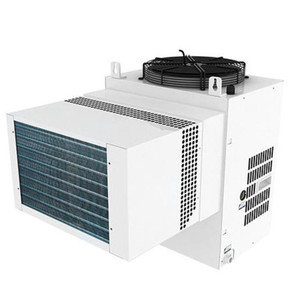




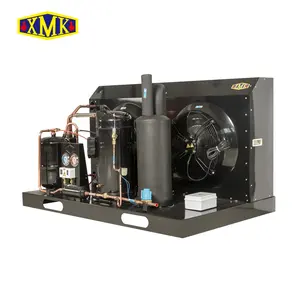

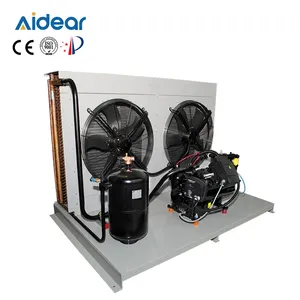
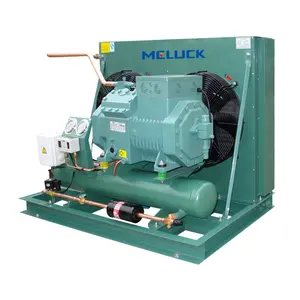
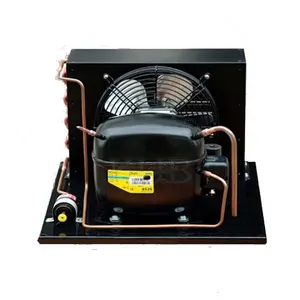

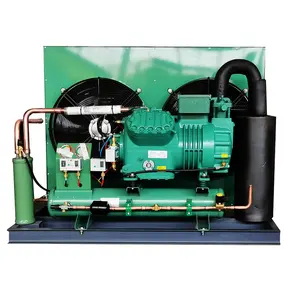

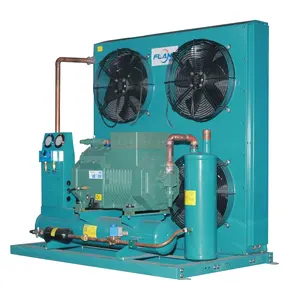
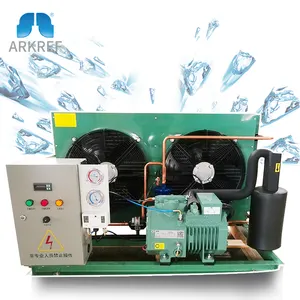
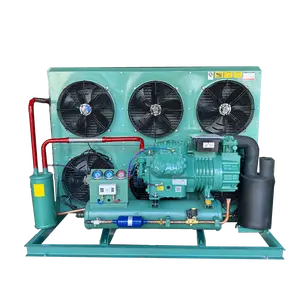


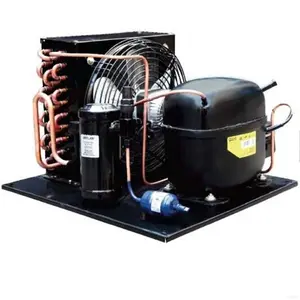
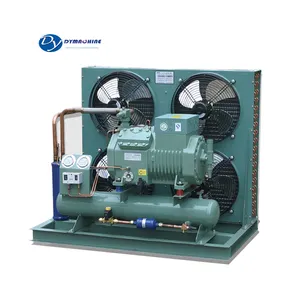

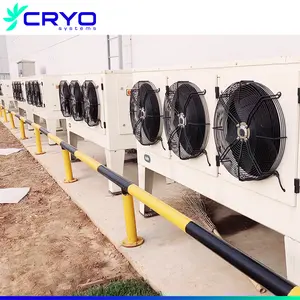



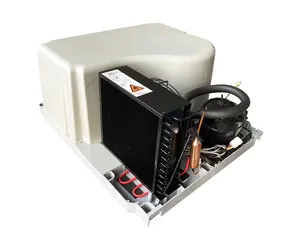

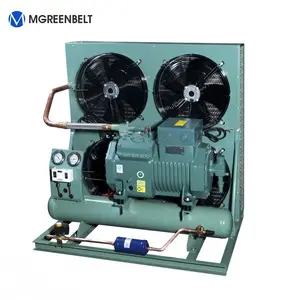
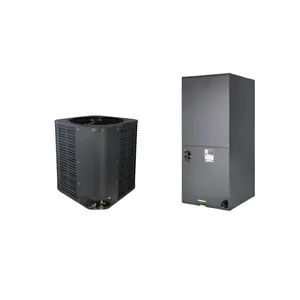



































 浙公网安备 33010002000092号
浙公网安备 33010002000092号 浙B2-20120091-4
浙B2-20120091-4